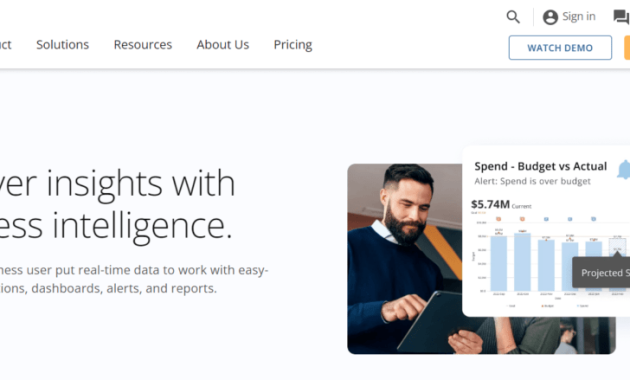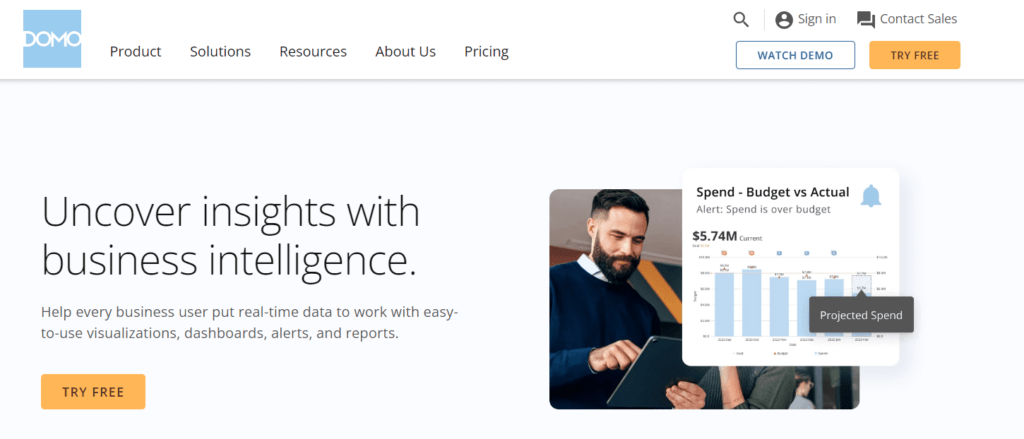
Business Intelligence Software for Small Teams That Perform: A Guide to Maximizing Impact
In today’s data-driven world, the ability to understand and leverage information is paramount. This is true whether you are a multinational corporation or a small team. For small teams, the right business intelligence (BI) software can be a game-changer. It transforms raw data into actionable insights. This article explores the landscape of business intelligence software. It focuses specifically on solutions tailored for small teams that perform. We will examine the benefits, key features, and best practices. Our goal is to help you select and implement the perfect BI solution. This solution will empower your team to make data-driven decisions.
The Power of Business Intelligence for Small Teams
Small teams often face unique challenges. They have limited resources and a need for agility. They must also make impactful decisions quickly. Business intelligence software addresses these needs. It provides a centralized view of critical data. This enables teams to identify trends and opportunities. It also helps them to respond swiftly to market changes. The benefits extend beyond simple reporting. BI tools facilitate predictive analytics. This allows teams to forecast future outcomes. They can also optimize their strategies. This is all based on data-backed evidence.
A key advantage of business intelligence software for small teams is its ability to level the playing field. Smaller organizations can compete effectively with larger competitors. They can do this by using data to inform their decisions. This is particularly true in areas like marketing, sales, and customer service. With the right BI solution, a small team can gain a competitive edge. They can achieve this through improved efficiency and better customer understanding.
Key Features to Look For in BI Software
Selecting the right business intelligence software is crucial. Several features are essential for small teams. Consider these elements when evaluating different options:
- Ease of Use: The software should be intuitive and easy to learn. This is especially important for teams without dedicated data analysts. Look for a user-friendly interface. The interface should also offer drag-and-drop functionality.
- Data Integration: The ability to connect to various data sources is vital. The software should integrate with your existing tools. These tools include spreadsheets, CRM systems, and marketing platforms.
- Data Visualization: Powerful data visualization tools are a must-have. The software should offer a range of charts and graphs. These tools can help you present data in a clear and understandable way.
- Reporting and Dashboards: Customizable dashboards and automated reporting features are essential. They streamline the process of monitoring key performance indicators (KPIs). You can then share insights with your team.
- Collaboration: Look for features that facilitate collaboration. This includes secure data sharing and commenting. This allows team members to work together on data analysis and insights.
- Scalability: Choose a solution that can grow with your business. It should be able to handle increasing data volumes and user needs.
- Mobile Accessibility: Mobile access allows you to view reports and dashboards on the go. This is crucial for teams that need real-time data insights.
Top Business Intelligence Software Options for Small Teams
Several business intelligence software solutions cater specifically to small teams. Each offers a unique set of features and benefits. Here are some of the most popular options:
- Tableau: Tableau is a leading BI platform. It is known for its powerful data visualization capabilities. It is also recognized for its user-friendly interface. Tableau offers a range of features suitable for small teams. These include data blending and interactive dashboards.
- Microsoft Power BI: Power BI is a cost-effective solution. It is integrated with the Microsoft ecosystem. Power BI is popular among small businesses. It offers a wide range of features, including data modeling and reporting.
- Zoho Analytics: Zoho Analytics is part of the Zoho suite of business applications. It offers a user-friendly interface and pre-built connectors. These connectors allow for easy integration with various data sources.
- Qlik Sense: Qlik Sense is known for its associative data model. This model allows users to explore data relationships intuitively. Qlik Sense is a good option for teams. These teams need in-depth data analysis capabilities.
- Klipfolio: Klipfolio is a dashboard-focused BI platform. It is perfect for teams that need to monitor KPIs in real-time. Klipfolio offers a wide range of data connectors.
The best choice depends on your team’s specific needs and budget. Consider the features and pricing of each solution. Also factor in the ease of use and integration capabilities.
Implementing Business Intelligence Software: Best Practices
Successfully implementing business intelligence software requires a strategic approach. Following these best practices will maximize your chances of success:
- Define Your Goals: Before selecting any software, define your business objectives. Identify the specific questions you want to answer with data.
- Choose the Right Software: Select a BI solution that aligns with your team’s needs and budget. Consider factors like ease of use, data integration, and visualization capabilities.
- Data Preparation: Clean and organize your data before importing it into the BI software. This ensures accurate insights.
- Training and Adoption: Provide adequate training for your team. Encourage them to use the software. This is crucial for successful adoption.
- Regular Monitoring and Analysis: Regularly monitor your KPIs and analyze your data. Identify trends and opportunities. Then, take action based on your findings.
- Iterate and Improve: Continuously refine your BI processes. Adapt to changing business needs. This will improve the value you get from your data.
Overcoming Common Challenges
Implementing business intelligence software for small teams can present challenges. Be prepared to address these:
- Data Silos: Integrate data from all your sources. This ensures a complete view of your business.
- Lack of Expertise: If your team lacks data analysis expertise, consider training or outsourcing.
- Data Quality Issues: Implement data quality checks. Regularly review and correct any inaccuracies.
- Resistance to Change: Ensure your team understands the benefits of BI. Encourage them to embrace data-driven decision-making.
- Limited Budget: Choose a cost-effective BI solution. Explore free trials and open-source options.
Real-World Examples of Small Teams Succeeding with BI
Many small teams use business intelligence software to achieve remarkable results. Here are a few examples:
- Marketing Agency: A small marketing agency used BI to track campaign performance. They optimized their ad spend. They also improved their conversion rates. They were able to increase their clients’ ROI.
- Retail Business: A small retail business used BI to analyze sales data. They identified top-selling products and popular trends. This helped them optimize their inventory. They also improved their customer satisfaction.
- Consulting Firm: A consulting firm used BI to track project profitability. They also improved resource allocation. They then enhanced their overall efficiency. This led to higher revenue.
These examples demonstrate the power of business intelligence software. They also show how it can drive success for small teams.
Future Trends in Business Intelligence for Small Teams
The field of business intelligence is constantly evolving. Small teams should stay informed about emerging trends. Here are a few trends to watch:
- Artificial Intelligence (AI) and Machine Learning (ML): AI and ML are being integrated into BI tools. This will enable automated insights and predictive analytics.
- Self-Service BI: The trend toward self-service BI will continue. This will empower non-technical users to analyze data.
- Cloud-Based Solutions: Cloud-based BI solutions are becoming increasingly popular. They offer scalability and cost-effectiveness.
- Data Democratization: The focus on data democratization will continue. This will make data accessible to everyone in the organization.
- Mobile BI: Mobile BI will become even more important. It will allow teams to access insights on the go.
Conclusion: Empowering Your Team with Data
Business intelligence software is a powerful tool. It can transform how small teams operate. It allows them to make data-driven decisions. By selecting the right software and following best practices, you can empower your team. Your team can gain a competitive edge. They can then achieve their business goals. Embrace the power of data. Start your journey to smarter decision-making today.
[See also: Choosing the Right BI Tool for Your Business]
[See also: Data Visualization Best Practices]
[See also: The Future of Business Intelligence]

